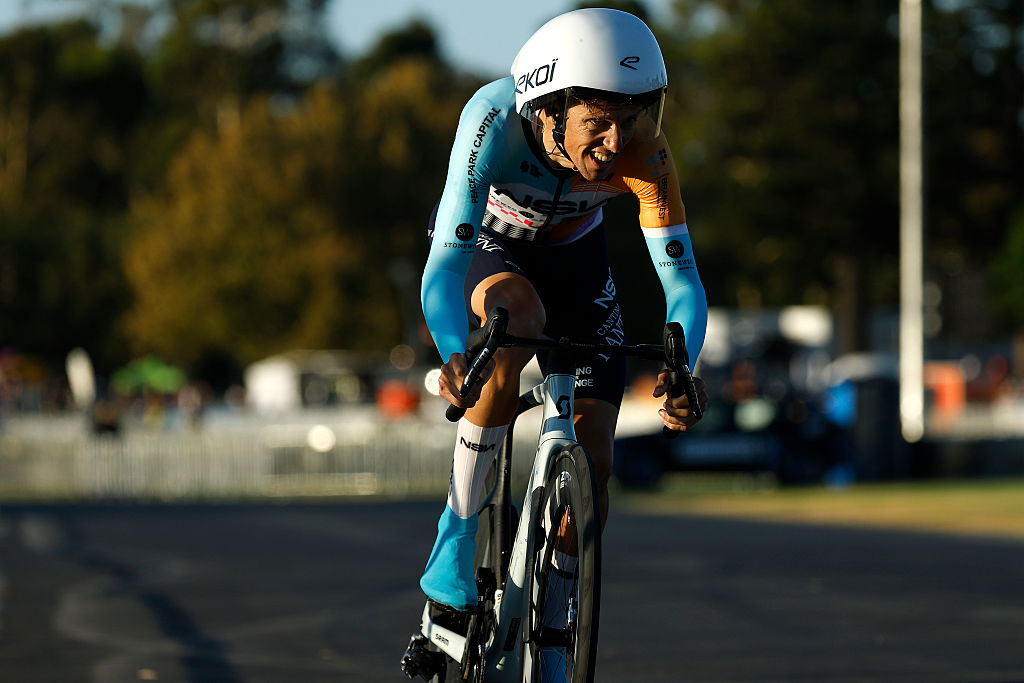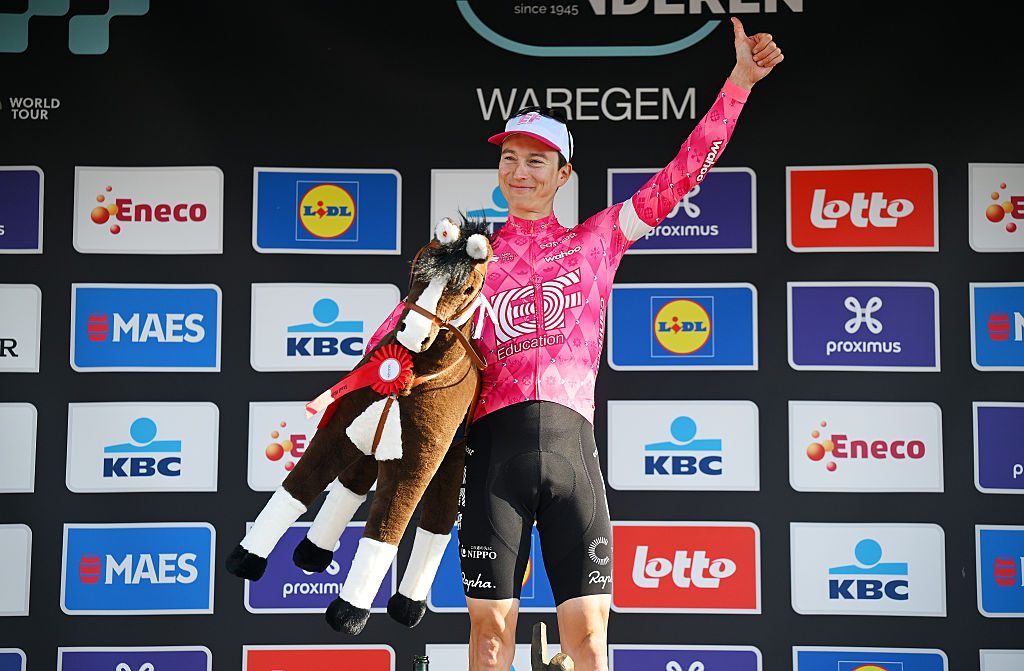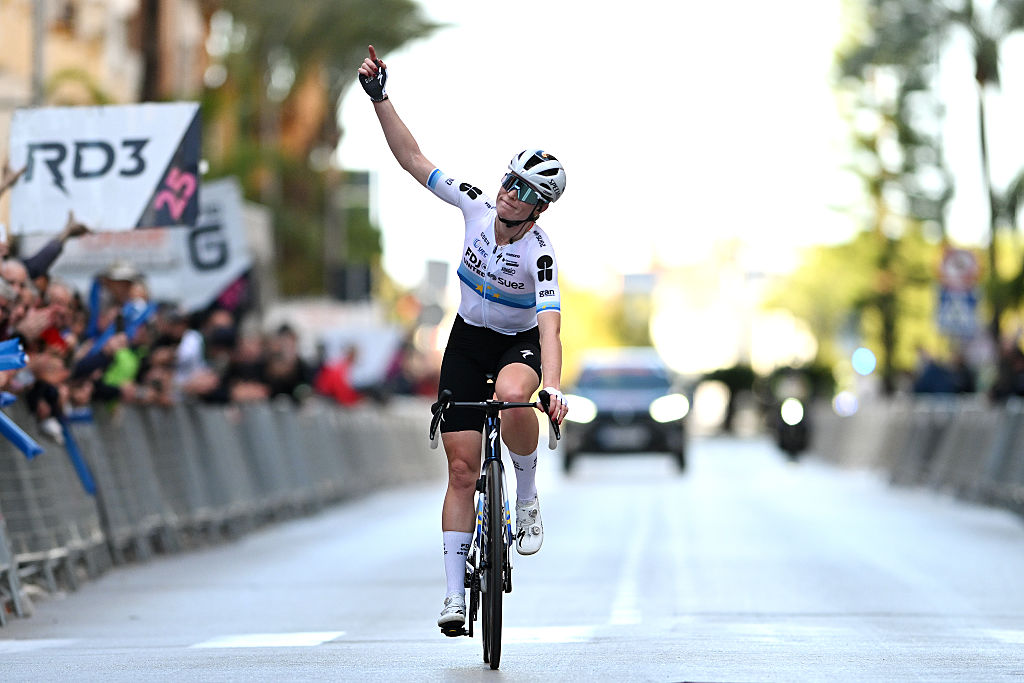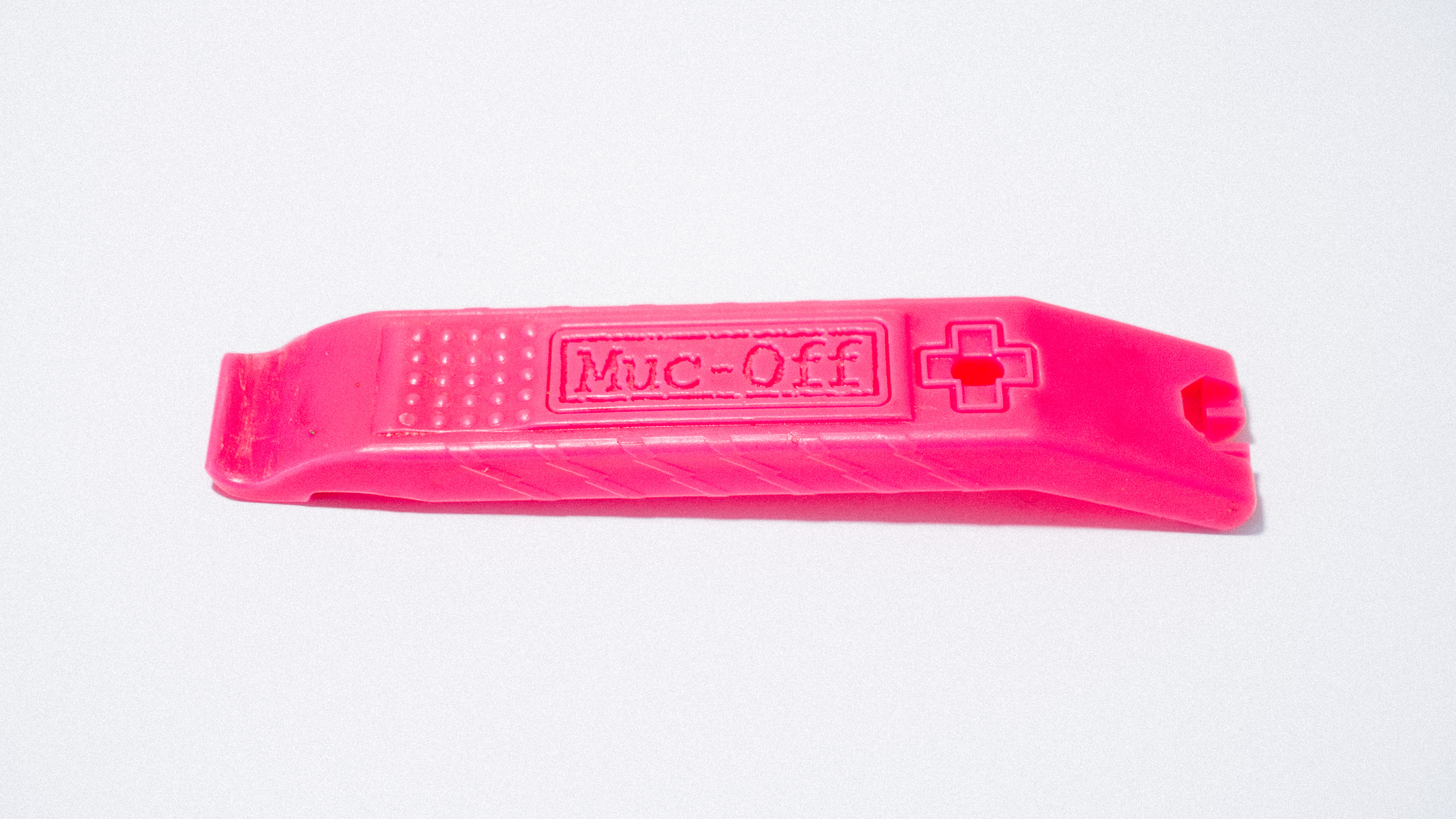German champ Grabsch wins stage but Devolder takes control of overall
German time trial champion Bert Grabsch confirmed his strength against the clock by setting a...
The latest race content, interviews, features, reviews and expert buying guides, direct to your inbox!
You are now subscribed
Your newsletter sign-up was successful
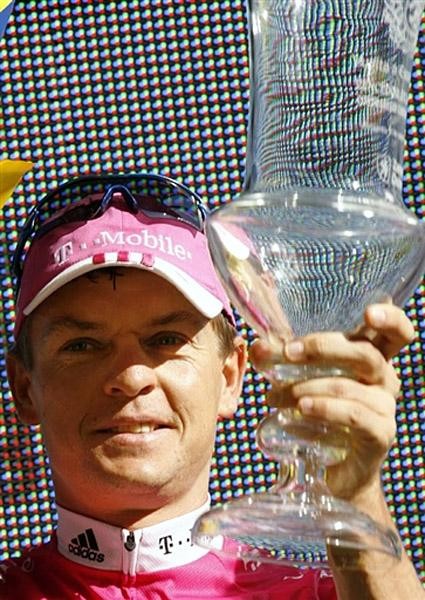
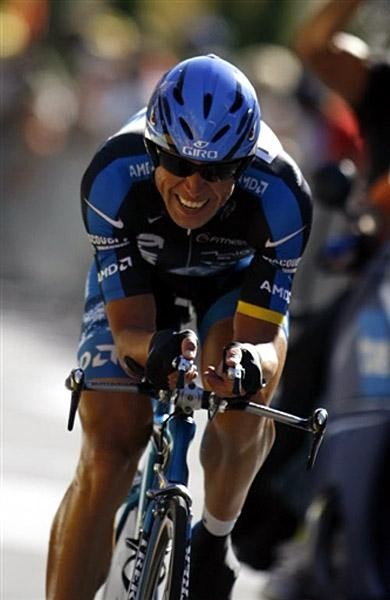
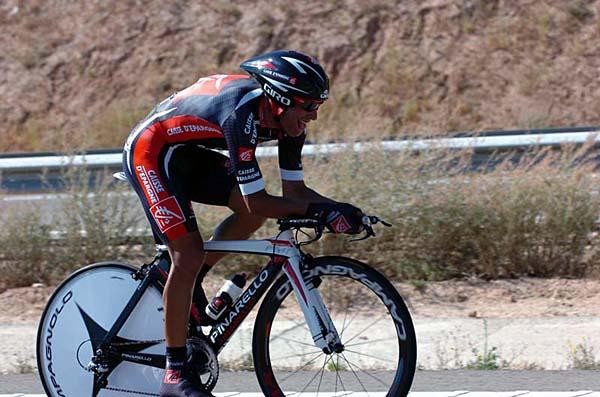


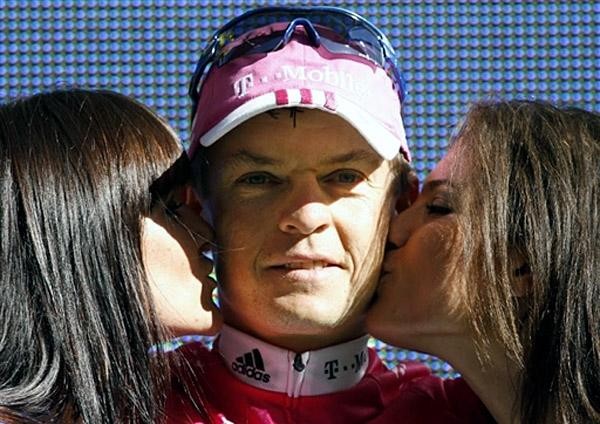
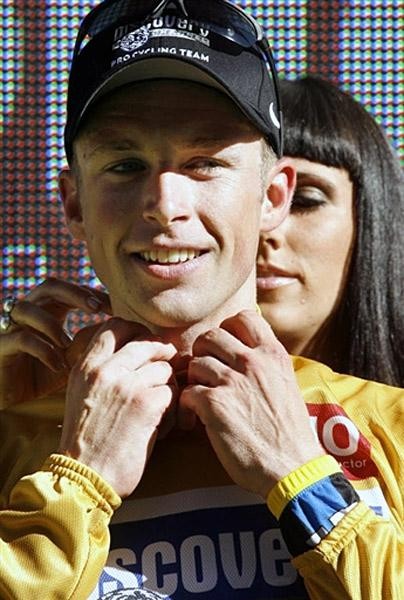
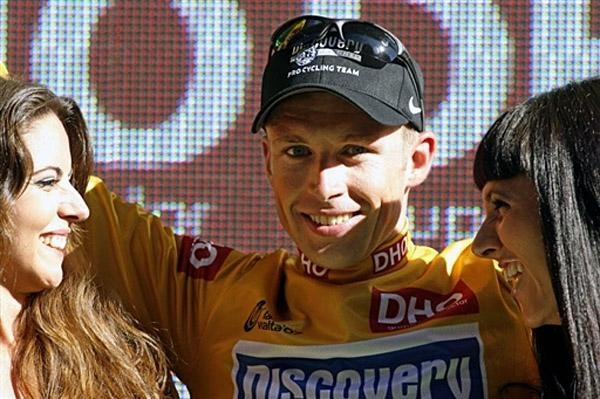
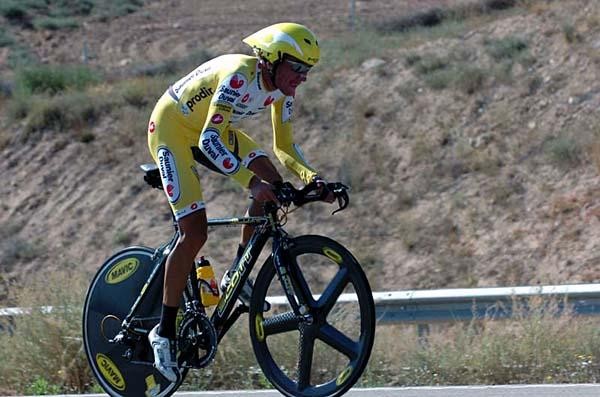
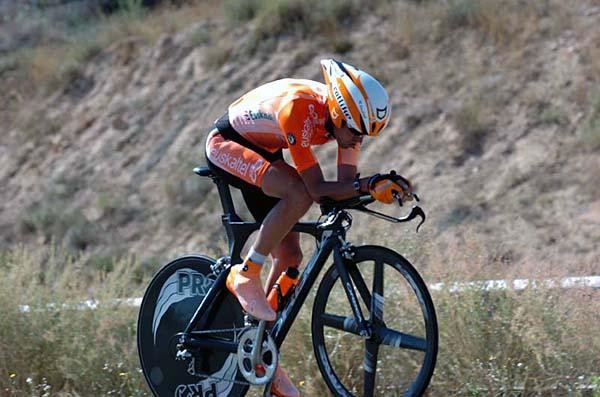
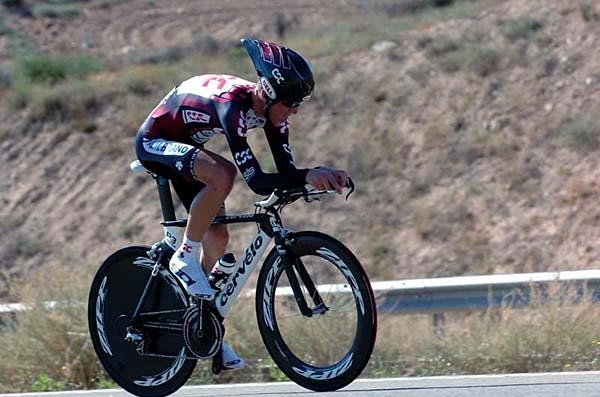

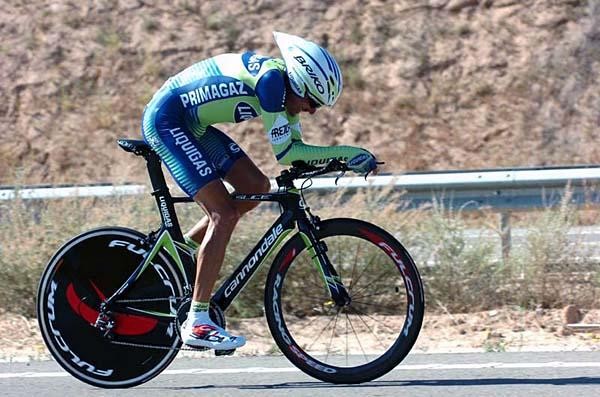
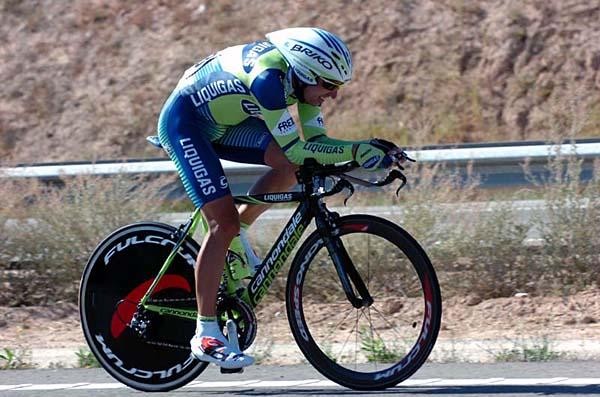
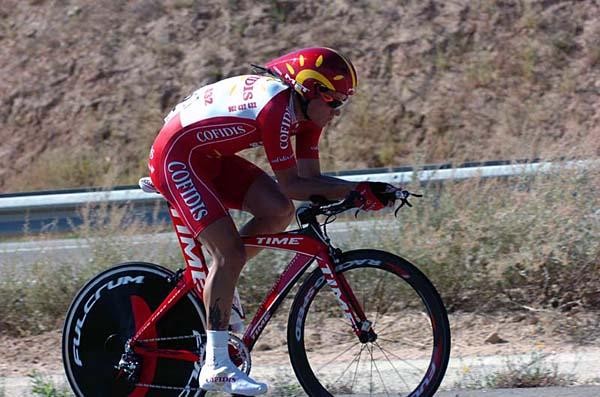
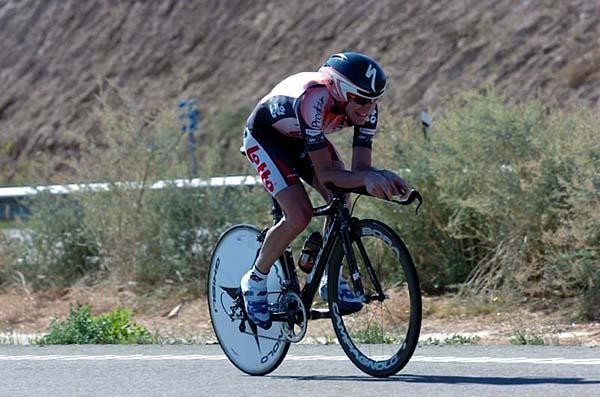
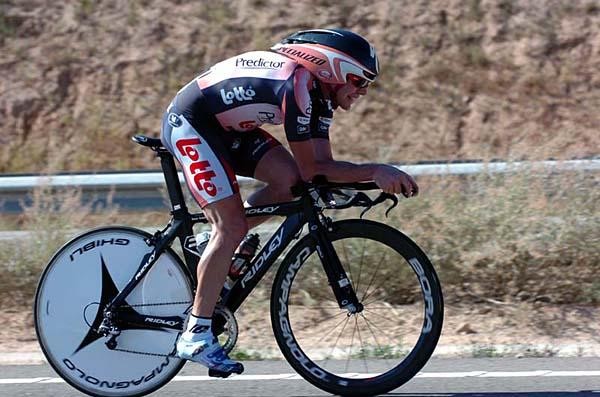
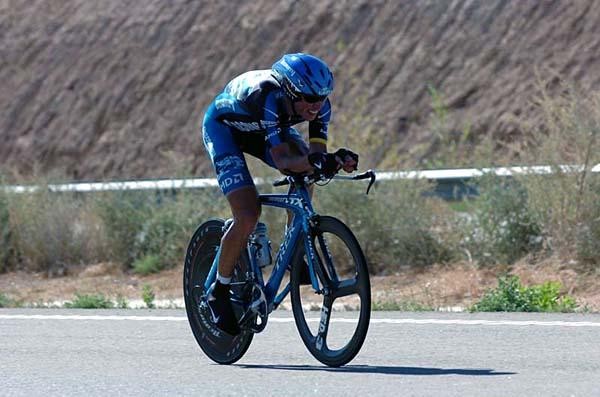
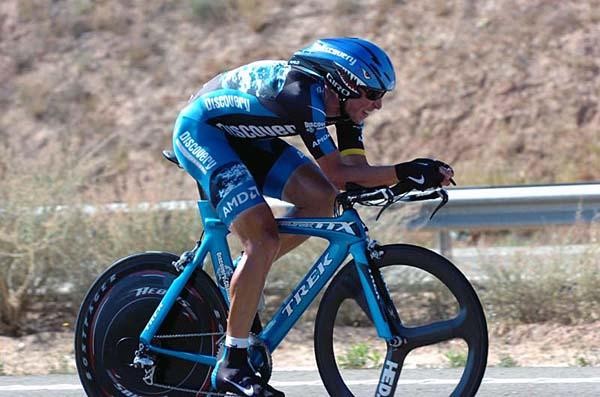
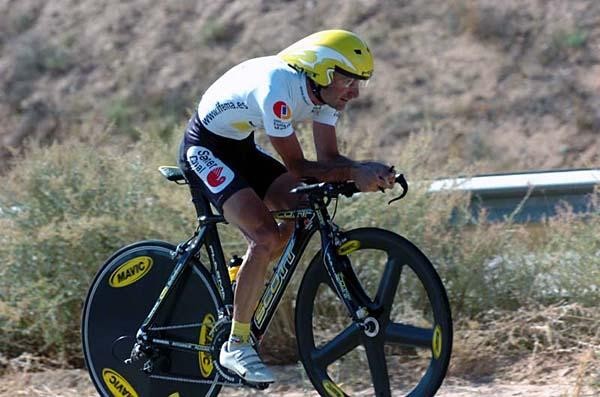
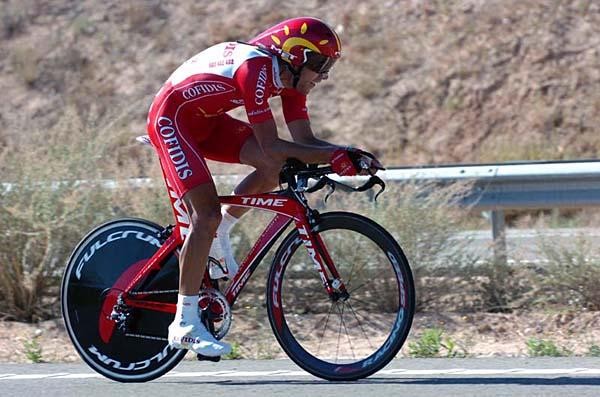
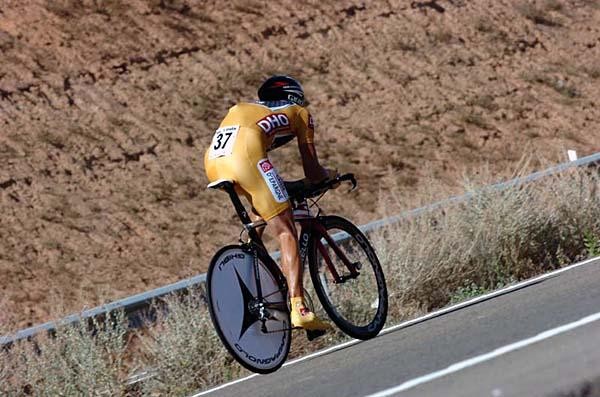
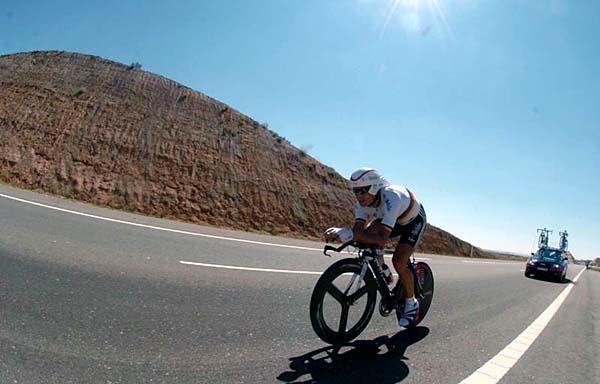
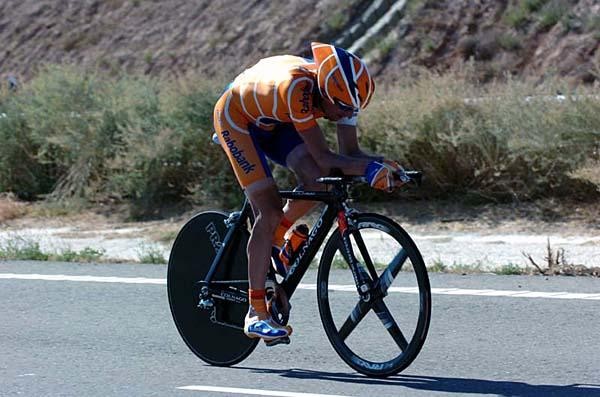
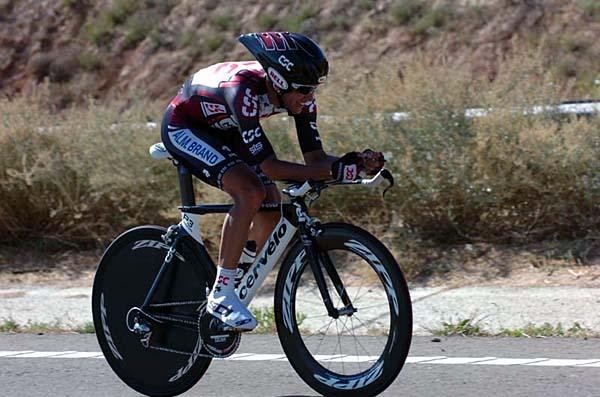
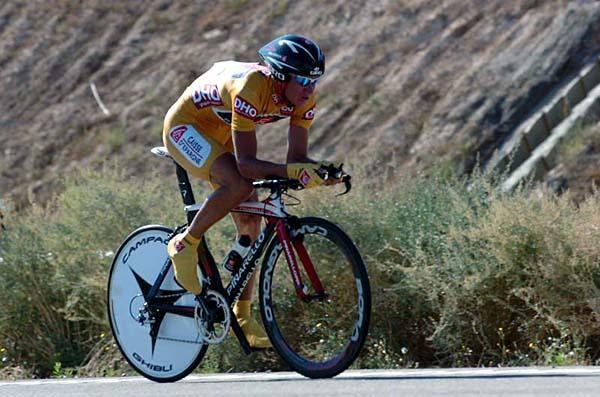
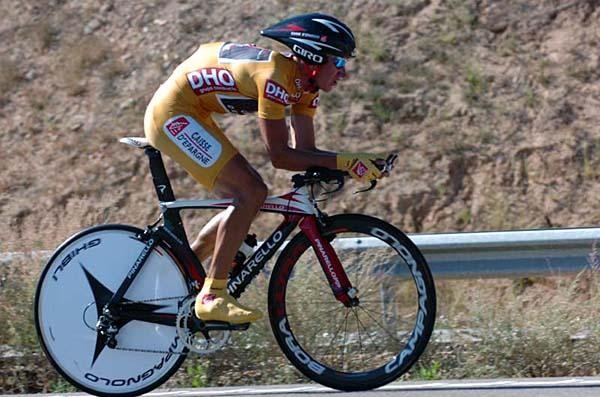
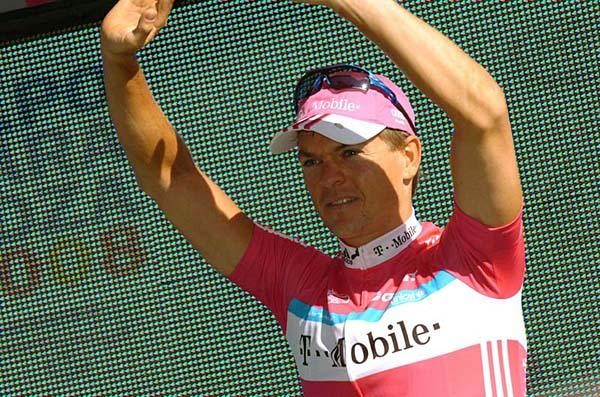
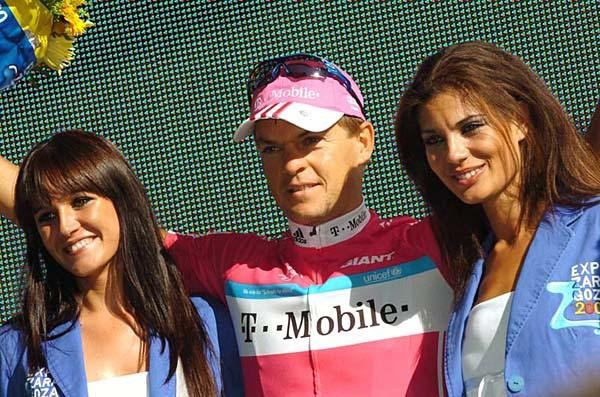
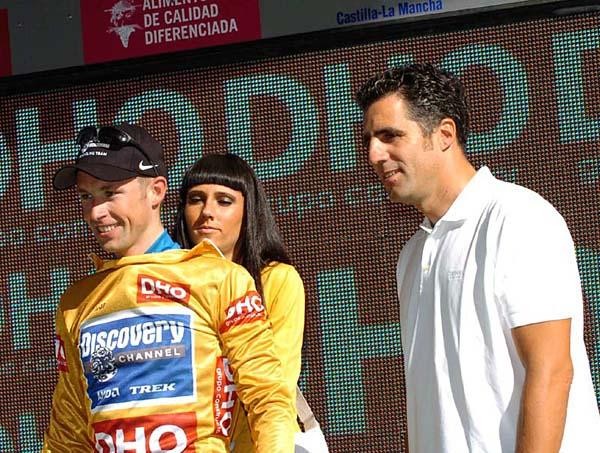
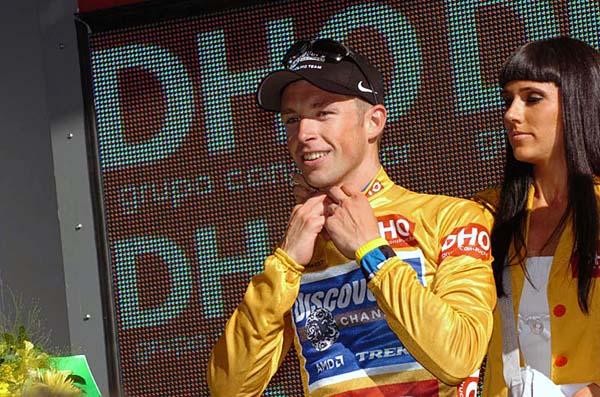
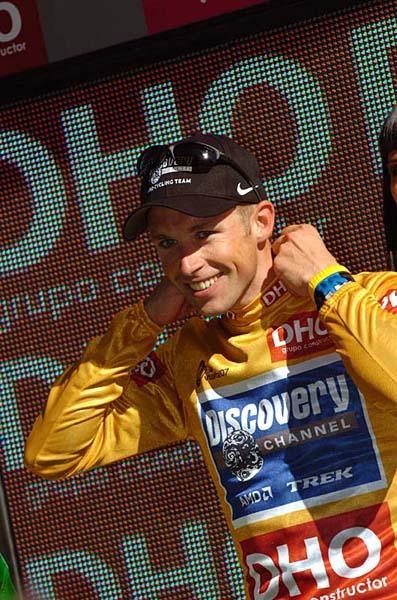
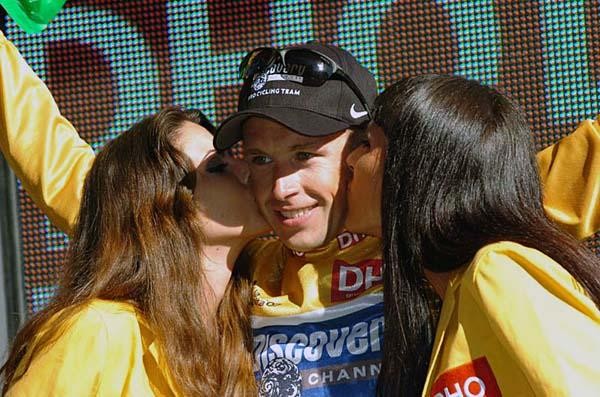
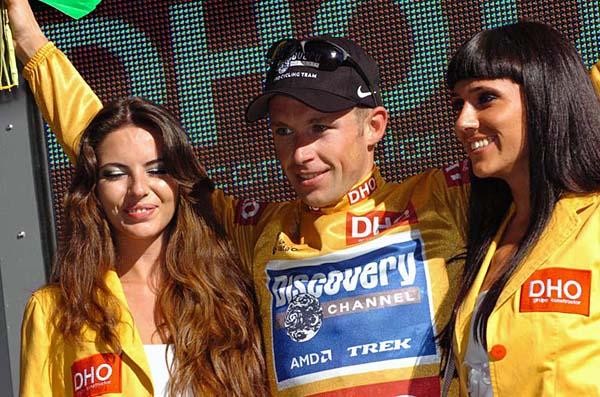
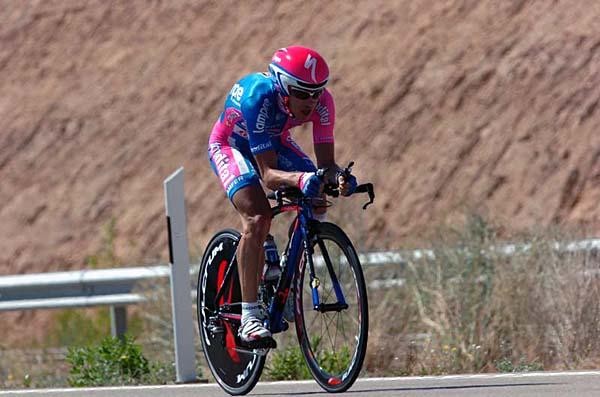
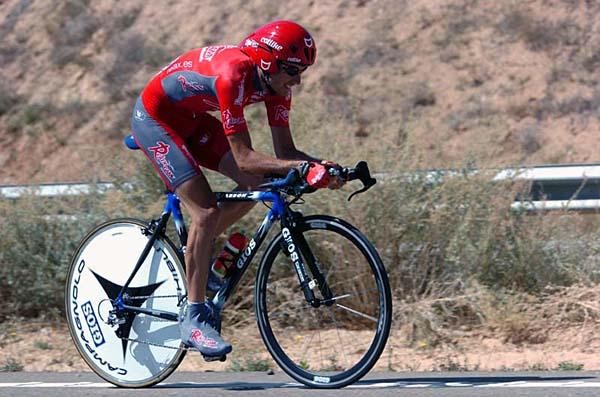
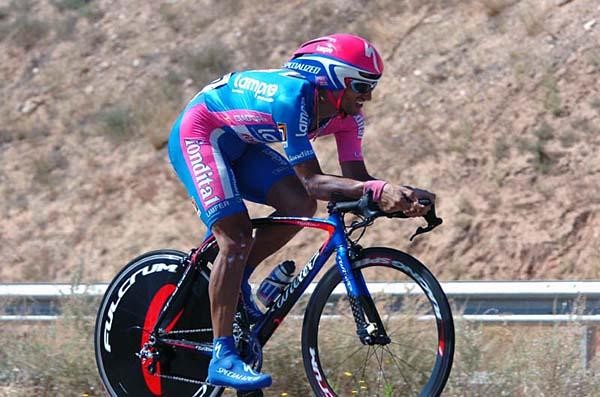
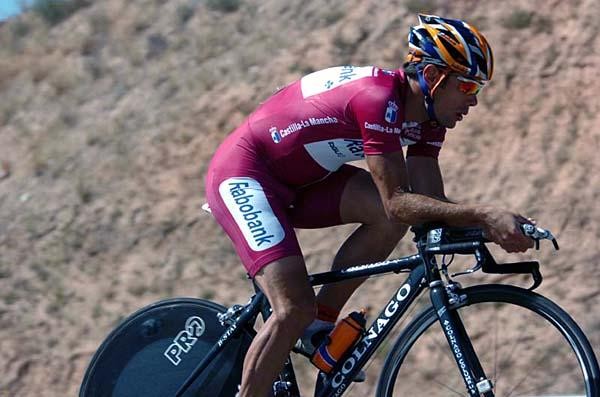
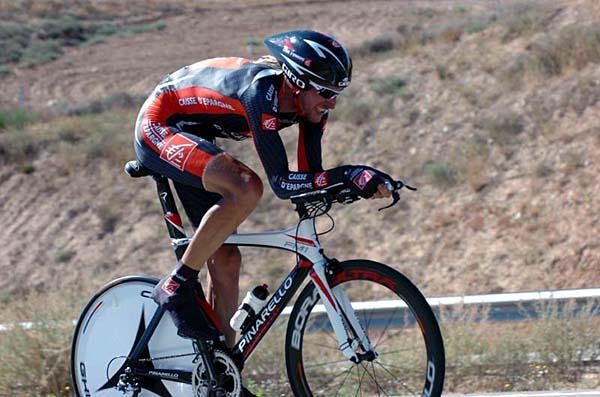
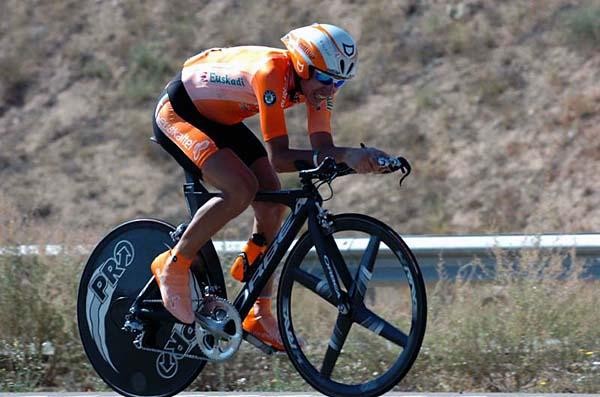
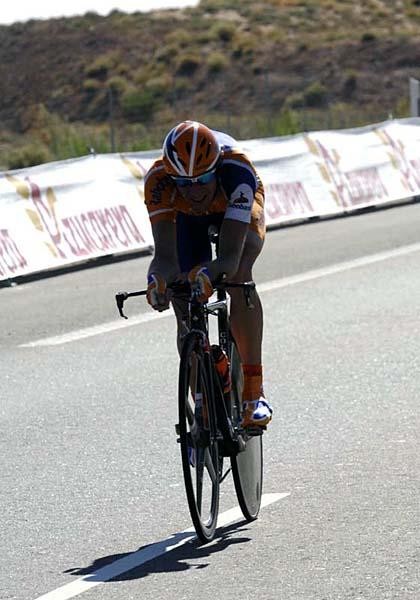
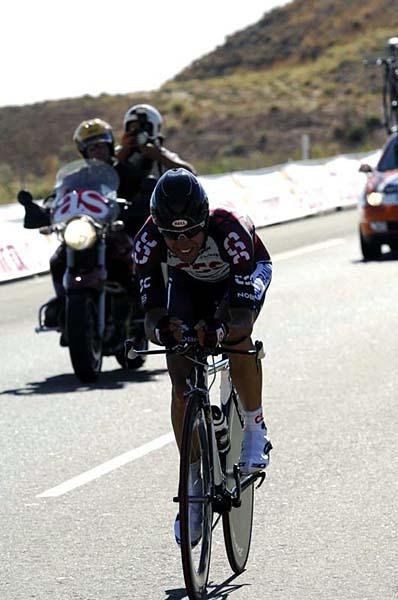
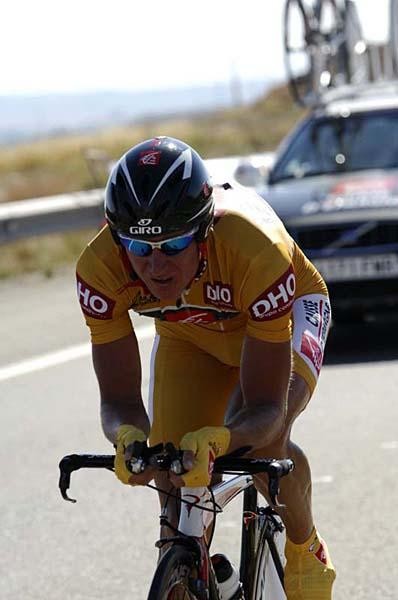
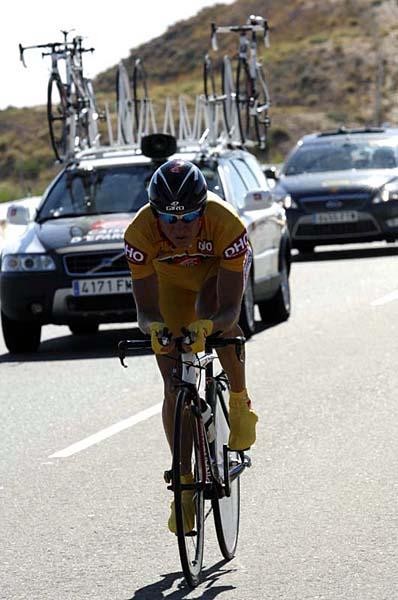
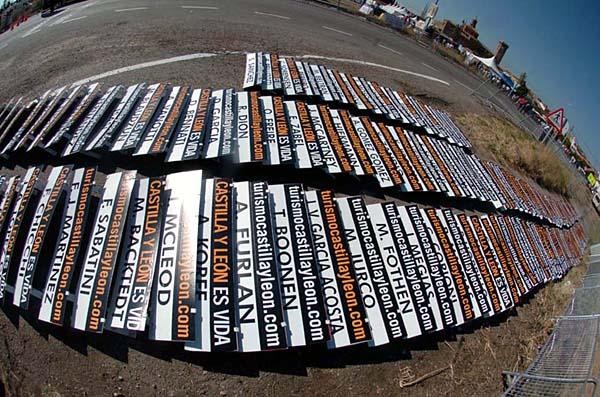
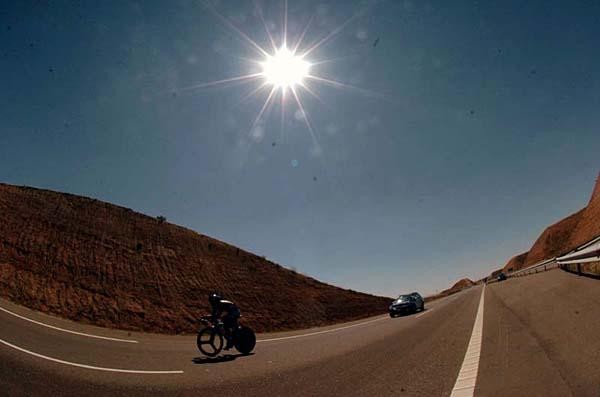
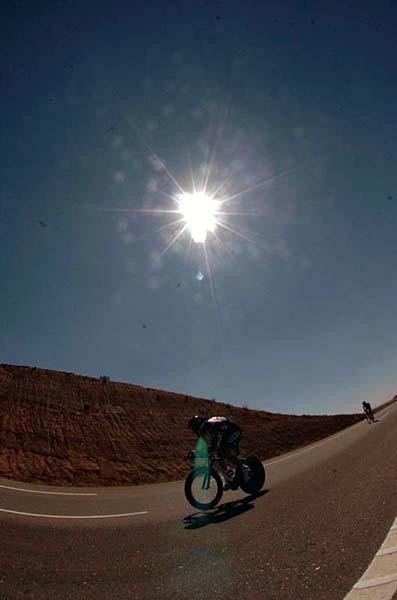
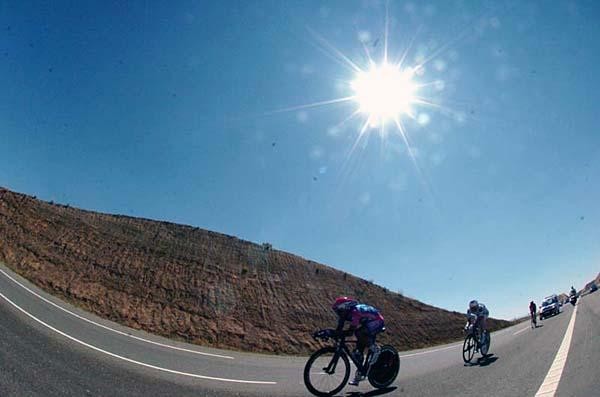
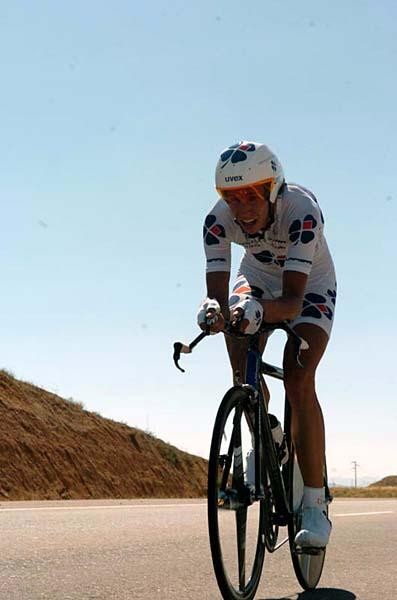
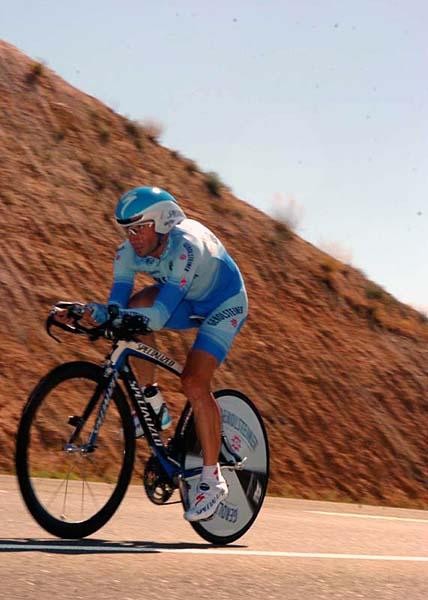
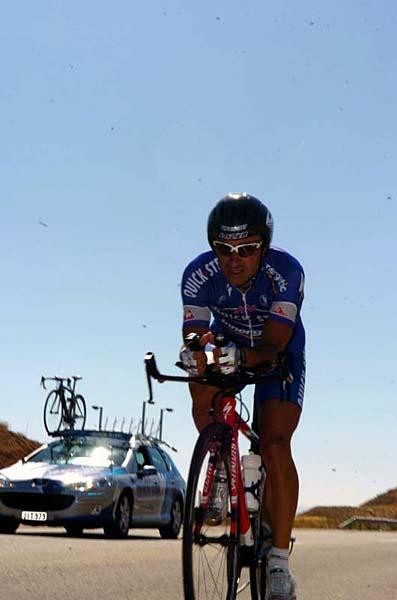
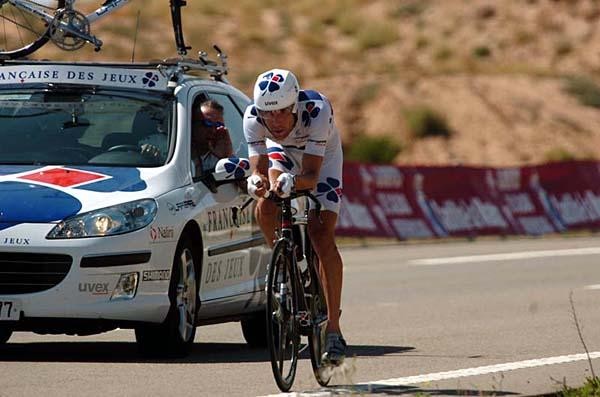
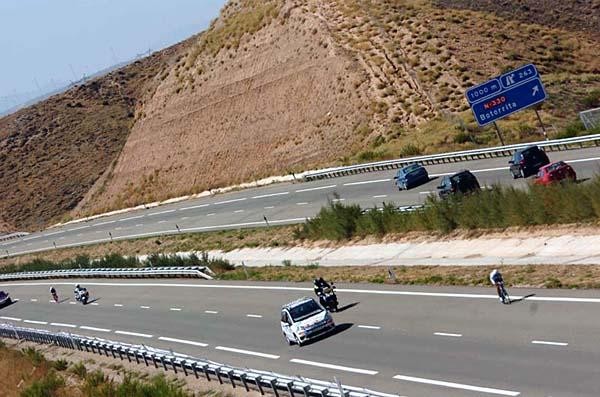
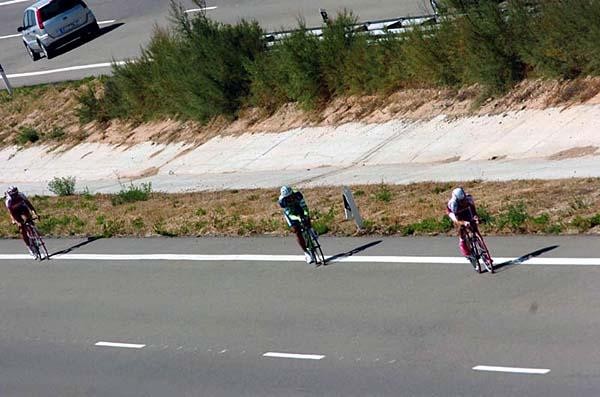
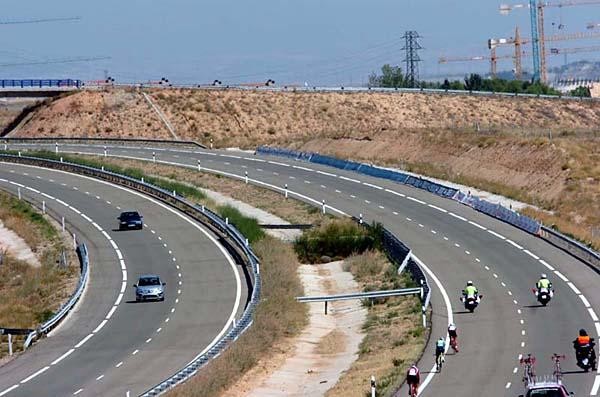
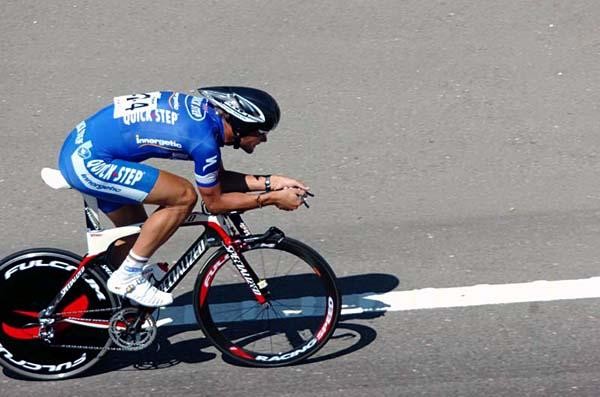
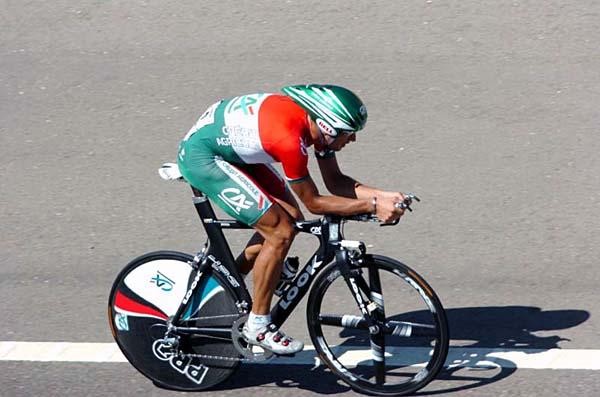
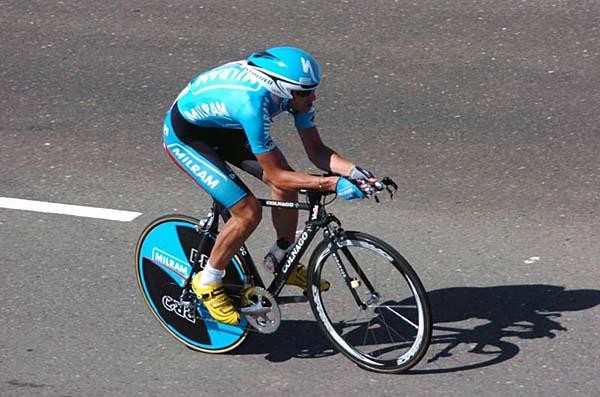
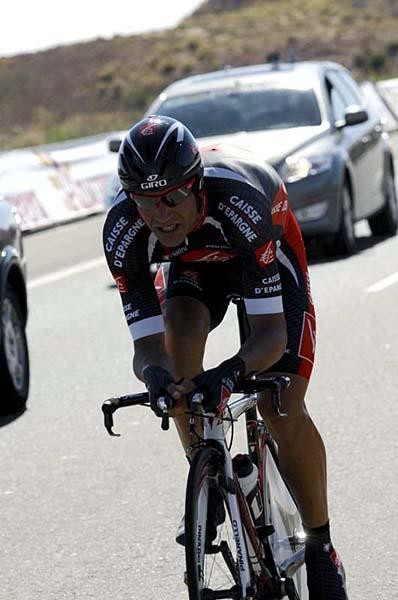
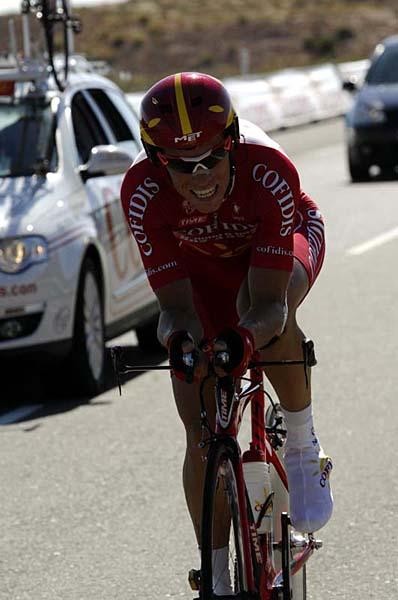
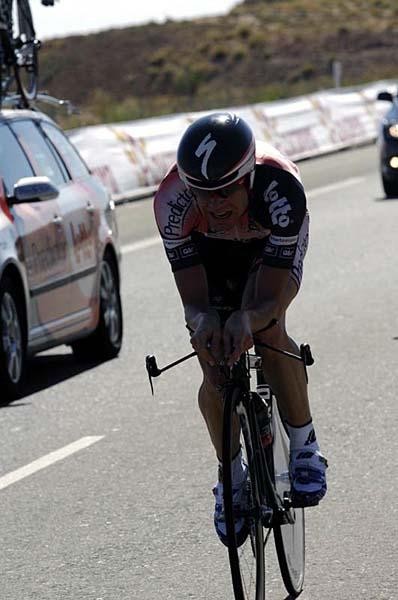
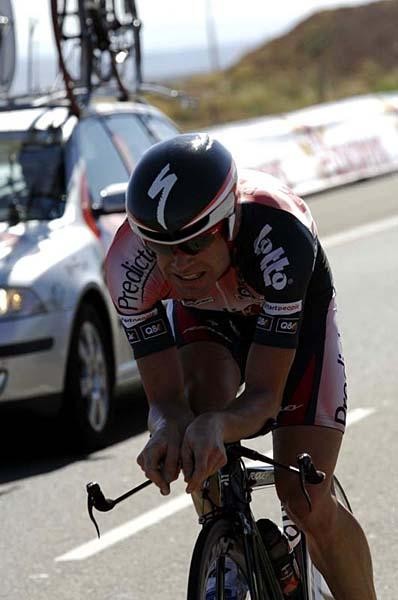
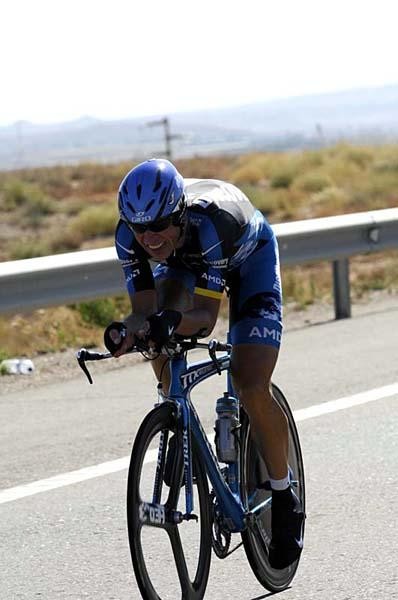
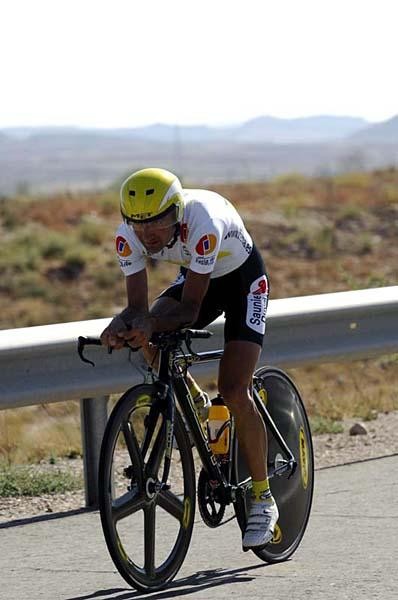
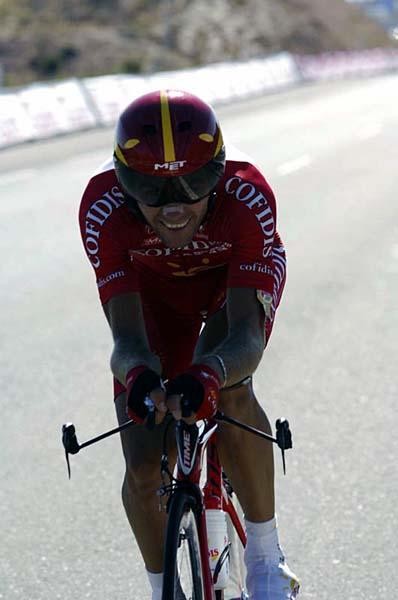
German time trial champion Bert Grabsch confirmed his strength against the clock by setting a blistering 55 km/h pace to take the win in the stage eight time trial on the long, flat, draining course in Zaragoza. On a day which clearly favoured the time trial specialists, Grabsch edged out the Hungarian time trial champion László Bodrogi (Credit Agricole) by 34 seconds to take his first Vuelta stage win. "I knew that after the Tour I had good form, but the win does come a bit surprising," Grabsch told Radsportnews.com. "I had been fourth and fifth at a Vuelta time trial before. It's nice that it was enough this time to win."
Coming into the day, Caisse d'Epargne's Vladimir Efimkin held a 1'06" lead over five riders in the overall classification: Denis Menchov (Rabobank), Carlos Sastre (Team CSC), Maxime Monfort (Cofidis), Stijn Devolder (Discovery Channel) and Leonardo Piepoli (Saunier Duval-Prodir), and with neither time Grabsch nor Bodrogi a threat for the overall, the fierce battle for the overall classification took place between third placed Devolder and Menchov.
Devolder came up with the goods in the second half of the race, overtaking Menchov's time by the midway point and gaining 30 seconds on the Russian by the finish, and now leads Menchov by that same margin in the overall. Efimkin dropped to third place overall, 1'28" back.
48 seconds slower than the day's winner, but ahead of all the GC contenders, Devolder was satisfied with his effort, telling TVE, "I will always remember Zaragoza, for sure. It's a very beautiful day for me taking the [leader's] jersey, especially to receive the jersey from a great idol like [Miguel] Indurain."
He is now getting ready to fight for the win in Madrid, and despite seeing threats from his close rivals like Menchov or Sastre, the Belgian said that he would like to win. "I hope so. It's a long way to go. I know there are two hard days tomorrow and the day after. If I go through those two hard days, maybe there is a possibility. I will do it the best I can."
Devolder went on to say that he fears his competitors more than he fears the tough terrain to come. "For sure, the riders, not the mountains. I guess Menchov is the closest behind me and then there are a lot of Spanish great riders like [Gomez] Marchante, Sastre. I guess Sastre will be the hardest one."
Euskaltel-Euskadi's leader Samuel Sanchez had help from a former Spanish time trial great, but still was at his limit to finish 19th, and is now in 11th overall, 4'09 back. "I had very good sensations especially because I had the luck to have Igor Gonzalez de Galdeano [following me] in the car team," Sanchez said. "He was the one who was pushing me all the time in psychological terms; he didn't let me lose concentration for one minute. He asked me all the time to remain concentrated, not to look to the front, to look at my shadow, to think of the way I was riding. It was a time trial to be strong psychologically because the Zaragoza straight lines can make you suffer easily."
The latest race content, interviews, features, reviews and expert buying guides, direct to your inbox!
There were no changes in the points and mountain classification, but Devolder also took over in the Combination classification and leads Efimkin by two points. Caisse d'Epargne is still leading the teams classification, but Discovery Channel moved up into second place, thanks to Devolder's good ride, along with Jason McCartney, who came in seventh and Jurgen Van Goolen in 13th.
How it unfolded
The first rider to take the start in Cariñena was Vincent Jerome (Bouygues Telecom). The Frenchman set out at 12:50pm for one of the longest time trials in the history of the Vuelta at 52.2km. On the mostly flat or downhill course, the time trial specialists had an advantage and the climbers were in fear of the long, hot, flat windy roads ahead. Saunier Duval's GC hopeful José Ángel Gómez Marchante was pessimistic about his chances before the start, stating that "I don't like the route at all - it's a fully flat course for time trialists only. We climbers will find it difficult."
The early fast time was set by Swedish champion Magnus Backstedt (Liquigas) who clocked in at 58 minutes and 42 seconds, but Bodrogi soon bettered that time, coming in 1'03 faster at 57 minutes and 39 seconds.
The desert-like setting didn't draw many spectators and the group of ten people waving flags at one of the exits was about as much as it would get until they hit Zaragoza. There, the crowds were thicker and the cheering louder.
As the German champion, Bert Grabsch can certainly be considered a specialist and set the best time on all four time checks. He pushed Hungarian Laszlo Bodrogi off the top of the leader board, beating the Hungarian's time in the first two intermediate checks and at the finish line by 34 seconds, finishing in 57 minutes and 5 seconds. This was much better than his recent experience in the Regio Tour, where he had to fight against the hills and technical descents and even crashed, leaving him without chance to win. This time, everything went right and the course was just perfect for the powerful German rider.
The German's performance was the big reference when the riders at top in the overall classification started riding. Cadel Evans (Predictor-Lotto) was one of the favorites coming into the Vuelta, but but he didn't begin very well. In the first intermediate check at km 12, he was 42 seconds slower than Grabsch. In the end, the Australian ended up 11th losing 2'20'' with the German TT champion.
Denis Menchov (Rabobank) was clearly on a good day, and at the first check he was just nine seconds slower than Grabsch. Menchov could see his two-minute man, Carlos Sastre, after about 25 kilometres. The sight clearly lifted the Russian's game another notch as he pounded through the 27-kilometre time check in third place, 28 seconds down but having the satisfaction of passing Sastre. The Spaniard tried to stay close but eventually conceded over four minutes to Grabsch and 2'45" to Menchov.
But Menchov's great time trial still wasn't good enough against the storming Belgian, Stijn Devolder. Deprived of wearing his Belgian road championships jersey in the time trial he was determined to change his jersey colour for the remaining road stages from black-yellow-red to gold. With his helmet showing drawing of a shark's sharp teeth the Discovery Channel rider showed all the aggression necessary to get the leader's jersey. Gritting his teeth he came out of the saddle after the last turn to get every ounce of energy out of his tired legs.
Tomorrow the riders will check out the Pyrenees, going from Huesca 167 kilometres over two category two and one category three climb before finishing off with the HC climb up ton the skiing station of Cerler. The average gradient for the final climb is 5.5 percent, with a maximum of 9.5 percent. Not the steepest climb, but at 1,887 metres high it will certainly once again shake up the overall classification.
Latest on Cyclingnews
-
'The thought of going to work in an office is the scariest thing in the world' – After a brutal year on and off the bike, George Bennett is more motivated than ever
'The big block for me starts when I go to Europe, doing altitude camp, and then we're really going to focus on the spring' -
Neilson Powless targets race wins at Flemish Classics after off-season knee injury and tendonitis 'pushed my goals back by a couple of months'
US rider begins seventh year at EF Education-EasyPost at three-day Tour de la Provence to support Lamperti and Leonard -
Setmana Valenciana: Demi Vollering converts 19km solo into opening stage victory
European road champion opens 2026 account with a win on a blustery day in Valencia -
Best tyre levers 2026: One product is so good, we've not bothered including the rest
After testing out various other tyre lever options, nothing comes close to the Muc-Off Rim Stix

